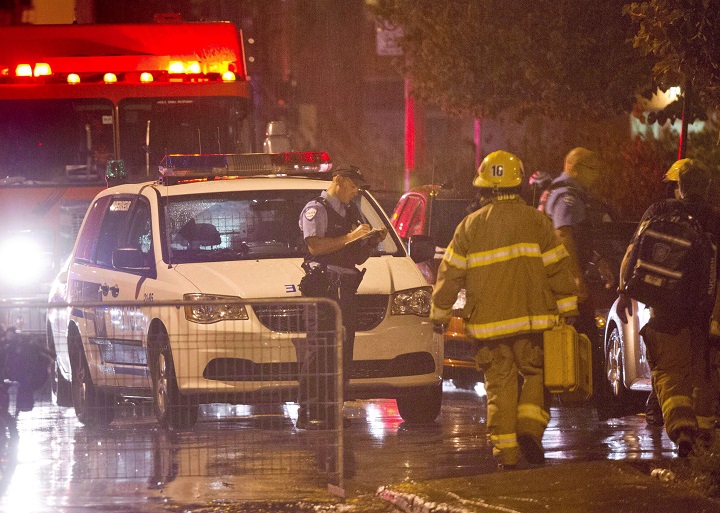Police determined there was a low level of danger outside the Montreal venue on election night in 2012 where a gunman shot and killed a lighting technician, according to a retired provincial police officer who helped oversee security.

Daniel Rondeau testified on Friday at a civil trial involving four stagehands who were present the night of the shooting and who are suing the City of Montreal and Quebec’s attorney general for a total of more than $600,000.
On election night, Sept. 4, 2012, Rondeau was a provincial police lieutenant overseeing security for political leaders and their spouses and co-ordinating operations from a command centre.
Rondeau told the trial there was no credible threat to the venue and so no officers were stationed outside the concert hall. No officer was with then-premier-designate Pauline Marois’s vehicle either, he said.
“The evaluation of the level of danger was low,” Rondeau testified.
The plaintiffs allege the police didn’t do enough to evaluate the risks associated with the event and that there were no police stationed outside the back door of the downtown venue or at other key areas. They say they suffered post-traumatic stress and other psychological damage because of the shooting.

Get daily National news
Richard Henry Bain was convicted in 2016 on one count of second-degree murder and three counts of attempted murder for the shooting outside the Metropolis as Marois delivered a victory speech inside.
Lighting technician Denis Blanchette was shot to death in the attack, and a second technician, David Courage, was injured after being struck by the same bullet that killed his colleague. The four stagehands who are suing are colleagues of the two men.
Rondeau said he spoke to Frédéric Desgagnés, a sergeant in charge of security for Marois, and said he was satisfied with the plan relayed to him over the phone for the political event. Desgagnés is expected to testify Monday.
He said the number of bodyguards assigned to Marois inside the venue was doubled to four and there were officers stationed at the front and back doors inside the Metropolis. Security organizing the event also checked the bags of those entering the venue.
Rondeau said the back door was left unlocked to allow technicians to come and go and for some party members to use it as well. He said if police had received credible threats or word of a protest, for example, officers could have been moved to stand guard outside. No such issues were identified, he told the court.
The civil trial has heard at least six threats were made against Marois the day of the election.
Rondeau said he only learned of those threats after the attack. He said all were investigated, but none were linked specifically to Bain. He briefed Marois and her family after the attack.
“It was an undetectable threat,” Rondeau said of Bain’s attack. “It was unpredictable.”










Comments